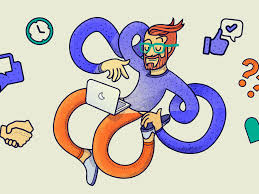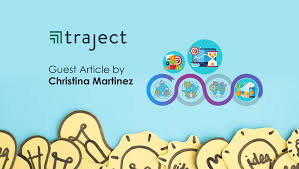The Internet: Connecting the World and Shaping Our Lives
In today’s modern era, the Internet has become an integral part of our daily lives. It has revolutionized the way we communicate, access information, conduct business, and even entertain ourselves. With just a few clicks, we can connect with people from all corners of the globe and access a wealth of knowledge at our fingertips. The Internet has truly transformed the world into a global village.
One of the most significant contributions of the Internet is its ability to connect people. Social media platforms have made it easier than ever to stay in touch with friends and family, regardless of geographical barriers. Through instant messaging apps and video calls, we can bridge distances and share experiences in real-time. The Internet has brought us closer together, fostering a sense of global community.
Beyond personal connections, the Internet has also had a profound impact on businesses worldwide. E-commerce has flourished due to online marketplaces that allow consumers to shop conveniently from their homes. Small businesses can reach a wider audience through websites and social media marketing strategies. The Internet has leveled the playing field, enabling entrepreneurs to compete with larger corporations on a global scale.
Access to information is another key advantage offered by the Internet. With search engines like Google, we can find answers to virtually any question within seconds. Online encyclopedias provide comprehensive knowledge on various subjects, while educational platforms offer courses that can be accessed from anywhere in the world. The democratization of information empowers individuals by giving them access to resources that were once only available to a privileged few.
Entertainment has also been revolutionized by the Internet. Streaming services like Netflix and YouTube have made it possible for us to enjoy movies, TV shows, music, and other forms of media on-demand. We can explore diverse genres and discover content tailored to our interests without being limited by traditional broadcast schedules or physical media storage.
However, as with any powerful tool, the Internet also poses some challenges. Privacy and security concerns have become increasingly prevalent in the digital age. It is crucial for individuals and organizations to take necessary precautions to protect sensitive information and guard against cyber threats.
Moreover, the digital divide remains a significant issue, with many people around the world lacking access to reliable Internet connections. Efforts are being made to bridge this gap and ensure that everyone can benefit from the opportunities offered by the Internet.
In conclusion, the Internet has transformed our world in ways we could have never imagined. It has connected us, empowered us, and opened up endless possibilities for growth and development. As we continue to embrace this powerful tool, it is essential to harness its potential responsibly and work towards creating an inclusive digital future for all.
6 Essential Tips for Internet Safety and Security
- Use strong passwords and change them regularly.
- Be aware of phishing scams by never clicking on suspicious links or attachments in emails or text messages.
- Use two-factor authentication when available to add an extra layer of security to your accounts.
- Install antivirus software and keep it updated with the latest virus definitions.
- Be aware of what you post online, as anything posted can be seen by anyone with internet access, even if you delete it later on!
- Utilize a Virtual Private Network (VPN) when connecting to public Wi-Fi networks for added security and privacy protection
Use strong passwords and change them regularly.
In today’s digital age, where our personal and financial information is stored online, it is crucial to prioritize the security of our online accounts. One simple yet effective tip to enhance your online security is to use strong passwords and change them regularly.
A strong password is one that is difficult for others to guess or crack. It should be a combination of uppercase and lowercase letters, numbers, and special characters. Avoid using common phrases, personal information like birthdays or names, or easily guessable sequences like “123456” or “password.” Instead, create unique and complex passwords that are challenging for hackers to decipher.
Changing your passwords regularly adds an extra layer of security. Even if you have a strong password, it’s still recommended to update it every few months. This practice minimizes the risk of unauthorized access to your accounts since any potential breaches would require the hacker to crack a new password.
Additionally, avoid reusing passwords across multiple accounts. Although it may be tempting to use the same password for convenience, doing so puts all your accounts at risk. If one account gets compromised, hackers can gain access to all other accounts that share the same password. Using unique passwords for each account reduces this vulnerability significantly.
To manage multiple complex passwords effectively, consider using a reliable password manager tool. These tools securely store all your passwords in an encrypted format and generate strong passwords on your behalf. They also provide convenient features like auto-fill and synchronization across devices.
Remembering multiple strong passwords may seem daunting at first, but with practice and the help of password managers, it becomes easier over time. The peace of mind that comes from knowing you’ve taken steps to protect your online presence far outweighs any inconvenience caused by regularly updating passwords.
By using strong passwords and changing them regularly, you significantly reduce the chances of falling victim to cyberattacks such as identity theft or unauthorized access to sensitive information. Safeguarding your online presence should always be a priority, and this simple tip is a proactive step towards ensuring the security of your digital life.
Be aware of phishing scams by never clicking on suspicious links or attachments in emails or text messages.
Protect Yourself Online: Beware of Phishing Scams
In today’s digital age, it’s important to stay vigilant and protect ourselves from online threats. One common form of cybercrime is phishing, where scammers attempt to deceive us into revealing sensitive information such as passwords, credit card details, or personal data. However, by following a simple tip, we can significantly reduce the risk: never click on suspicious links or attachments in emails or text messages.
Phishing scams often rely on tricking us into thinking that the communication we receive is legitimate. They may impersonate well-known companies, financial institutions, or government agencies to gain our trust. These fraudulent messages often contain urgent requests for personal information or prompt us to click on a link that leads to a fake website designed to steal our data.
To protect ourselves, it’s essential to be cautious and skeptical when receiving unsolicited emails or text messages. If an email seems suspicious or too good to be true, it’s best not to click on any links within it. Instead, independently visit the official website of the organization in question by typing the URL directly into your browser. This way, you can ensure you are accessing a legitimate site and not falling into a phishing trap.
Similarly, avoid opening attachments from unknown senders as they may contain malicious software that can infect your device. Even if the email appears to be from someone you know but seems out of character or unexpected, it’s wise to reach out and confirm with them before opening any attachments.
Remember that reputable organizations will never ask for sensitive information via email or text message. If you receive such a request claiming to be from your bank, social media platform, or any other service provider, exercise caution and contact them directly through their official channels to verify its authenticity.
By staying aware and following this simple tip of not clicking on suspicious links or attachments in emails or text messages, we can significantly reduce our vulnerability to phishing scams. Taking these precautions helps protect our personal information, financial security, and online identity.
In the ever-evolving digital landscape, it’s crucial to stay informed about the latest phishing techniques and remain proactive in safeguarding our online presence. By being cautious and adopting good cybersecurity practices, we can navigate the internet with confidence and enjoy all its benefits while keeping ourselves safe from cyber threats.
Use two-factor authentication when available to add an extra layer of security to your accounts.
Enhance Your Online Security with Two-Factor Authentication
In an increasingly digital world, the importance of safeguarding our online accounts cannot be overstated. With cyber threats becoming more sophisticated, it is crucial to take proactive measures to protect our sensitive information. One effective way to add an extra layer of security to your online accounts is by utilizing two-factor authentication (2FA).
What exactly is two-factor authentication? Simply put, it is a security measure that requires users to provide two forms of verification before accessing their accounts. Typically, this involves combining something you know (like a password) with something you have (such as a unique code sent to your mobile device).
By enabling 2FA, you significantly reduce the risk of unauthorized access to your accounts. Even if someone manages to obtain your password through hacking or phishing attempts, they would still need the secondary form of verification to gain entry. This additional step acts as a strong deterrent against potential attackers.
Implementing 2FA is relatively straightforward and can be done on various platforms and services. Many popular websites and applications offer this feature as an optional security measure. You can usually find it in your account settings or security preferences.
Once enabled, the most common method of 2FA involves receiving a one-time verification code via text message or through an authenticator app on your smartphone. After entering the correct code, you will be granted access to your account. Some platforms also offer alternative methods like biometric authentication (fingerprint or facial recognition) for added convenience.
It’s important to note that while 2FA significantly enhances security, it does not guarantee absolute protection against all threats. It should be used in conjunction with other best practices such as creating strong and unique passwords, regularly updating software and applications, and being cautious when clicking on suspicious links or downloading files.
In today’s digital landscape where data breaches and identity theft are prevalent concerns, taking advantage of available security measures like two-factor authentication is a wise decision. It adds an extra layer of protection to your online presence, giving you peace of mind knowing that your accounts are less vulnerable to unauthorized access.
So, don’t wait any longer. Take a few minutes to enable two-factor authentication on your important accounts and enjoy the added security it provides. Your online safety is worth the effort!
Install antivirus software and keep it updated with the latest virus definitions.
Protecting Your Digital World: The Importance of Antivirus Software
In today’s interconnected world, where we rely heavily on the Internet for various activities, it’s crucial to prioritize the security of our digital devices. One essential tip that can safeguard our systems is to install antivirus software and regularly update it with the latest virus definitions.
Antivirus software acts as a shield against malicious threats lurking in cyberspace. It scans files, programs, and websites for potential viruses, malware, and other harmful elements that could compromise our data or even damage our devices. By installing reputable antivirus software on our computers, smartphones, and tablets, we add an extra layer of protection to our digital lives.
However, merely installing antivirus software is not enough. Cybercriminals are continuously evolving their tactics to stay one step ahead. That’s why it’s crucial to keep the antivirus software updated with the latest virus definitions. Virus definitions are essentially a database of known threats that the software uses to identify and neutralize potential dangers.
Regular updates ensure that your antivirus software remains effective against the latest threats circulating in the digital realm. Developers constantly analyze new types of malware and create updates to combat them effectively. By staying up-to-date with these updates, you enhance your device’s security posture.
Updating your antivirus software is typically a straightforward process. Most modern antivirus programs have automatic update features that download and install new virus definitions in the background without requiring any manual intervention from you. However, it’s always a good idea to double-check your settings periodically to ensure automatic updates are enabled.
By following this simple tip of installing antivirus software and keeping it updated with the latest virus definitions, you significantly reduce the risk of falling victim to cyberattacks or having your personal information compromised. It provides peace of mind knowing that you have taken proactive steps to protect your digital world from potential threats.
Remember, cybersecurity is an ongoing process rather than a one-time fix. Alongside using antivirus software, it’s important to exercise caution while browsing the Internet, avoid suspicious downloads or email attachments, and regularly backup your important files. By adopting a comprehensive approach to cybersecurity, you can create a safer online environment for yourself and contribute to a more secure digital community.
Be aware of what you post online, as anything posted can be seen by anyone with internet access, even if you delete it later on!
In the digital age, it is more important than ever to be mindful of what we post online. The Internet has become a vast repository of information, accessible to anyone with an internet connection. Many of us have experienced the temptation to share our thoughts, photos, and experiences on various social media platforms without considering the long-term consequences.
It is crucial to remember that once something is posted online, it can potentially be seen by anyone, even if we delete it later on. The notion of privacy on the internet is constantly evolving, and even with strict privacy settings in place, there is always a risk that our content may be shared or accessed without our consent.
This tip serves as a reminder to exercise caution when sharing personal information or engaging in online discussions. It’s essential to think before posting and consider how our words or images may be interpreted by others. What may seem harmless or insignificant at the moment could have lasting effects on our personal and professional lives.
Employers, educational institutions, and even potential partners often conduct online searches as part of their evaluation process. They may come across content that we thought was long gone or hidden from public view. Therefore, it is crucial to maintain a positive digital footprint that accurately represents who we are and aligns with our values.
Additionally, being aware of what we post online helps protect us from potential cyber threats. Sharing sensitive information such as addresses, phone numbers, or financial details can make us vulnerable to identity theft or other malicious activities. By being cautious about what we share publicly, we minimize the risk of falling victim to such cybercrimes.
Ultimately, being aware of what we post online empowers us to take control of our digital presence and reputation. It allows us to present ourselves in a way that aligns with our personal brand and values while safeguarding our privacy and security.
So next time you’re about to hit that “post” button, take a moment to reflect on the potential implications. Remember, once it’s out there, it’s out there for good. Let’s use the internet as a tool for positive engagement, mindful sharing, and responsible digital citizenship.
Utilize a Virtual Private Network (VPN) when connecting to public Wi-Fi networks for added security and privacy protection
Utilize a Virtual Private Network (VPN) for Added Security and Privacy Protection on Public Wi-Fi Networks
In the digital age, public Wi-Fi networks have become a common convenience in coffee shops, airports, and other public spaces. While they offer easy and free access to the Internet, they also come with potential risks to our security and privacy. To safeguard your sensitive information when connecting to public Wi-Fi, it is highly recommended to utilize a Virtual Private Network (VPN).
A VPN is a service that creates a secure and encrypted connection between your device and the Internet. By using a VPN, all of your online activities are routed through an encrypted tunnel, making it difficult for anyone else on the same network to intercept or access your data.
One of the primary benefits of using a VPN on public Wi-Fi networks is enhanced security. Public networks are often unsecured, which means that hackers or malicious individuals can potentially intercept your data packets as they travel through the network. With a VPN in place, your data remains encrypted and protected from prying eyes.
Moreover, using a VPN adds an extra layer of privacy protection. When you connect to a public Wi-Fi network without a VPN, your online activities can be easily monitored by others on the same network. This includes websites you visit, login credentials you enter, and any personal information you transmit. By encrypting your connection through a VPN, you maintain your privacy and prevent others from tracking or collecting your data.
It’s important to note that not all VPNs are created equal. When choosing a VPN service provider, opt for reputable ones that prioritize privacy and have strong encryption protocols in place. Additionally, consider factors such as server locations and connection speeds to ensure optimal performance.
In summary, utilizing a Virtual Private Network (VPN) when connecting to public Wi-Fi networks is an essential step in protecting your security and privacy online. By encrypting your connection and shielding your data from potential threats, a VPN adds an extra layer of security and peace of mind. Prioritize your online safety by incorporating this simple yet effective tip into your digital routine.




